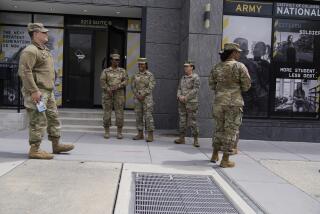More Strategy, Less Boilerplate : Clinton may need help from U.S. friends
- Share via
The Clinton Administration’s “bottom-up review” of U.S. military requirements in the second half of this decade calls for reducing the armed services, especially the Army and Air Force, while improving their combat readiness and their ability to get to trouble spots fast. It’s an assessment based, rightly, on the global strategic changes brought about by the disappearance of the Soviet threat to American national interests.
Less persuasively, though, it also makes some windy boilerplate assumptions about the nature of the post-Cold War world--for example, “If we dedicate ourselves to pursue worthy goals, we can reach a world of greater safety”--that can hardly serve as a substitute for having a coherent and comprehensive foreign policy.
The basic principle behind the restructuring plan is to retain the ability to fight two major regional conflicts “nearly simultaneously,” for example, in the Persian Gulf and on the Korean peninsula. A parallel expectation is that “the United States will often be fighting as the leader of a coalition, with allies providing some support and combat forces.” Americans would be greatly reassured if that expectation were based on concrete commitments.
Certainly South Korea can be counted on to carry the brunt of the fighting if it is again attacked by North Korea. Whether other countries in Europe or elsewhere can be relied on to help if intervention in other threatening regional conflicts was needed is another matter.
The victorious coalition that threw Iraq out of Kuwait clearly wouldn’t have taken shape if control of most of the Persian Gulf’s oil resources had not been at issue. But not every conflict where intervention might be required is like the Gulf. Where the issues surrounding aggression are seen as being more abstract or less strategically significant--in Bosnia, say--forming an effective coalition to take timely action can prove painfully difficult, even impossible.
The risk is that by developing a defense strategy that seems to take for granted prompt allied help, the Clinton Administration could be setting the stage for its own inability to act in world crises if no such help is forthcoming. The United States is destined to remain the world’s only superpower, but it must take care that its resources match its commitments. Those resources are shrinking. That’s why foreign-policy goals must include nailing down plenty of allied help--through NATO or under bilateral military pacts--where regional conflicts threaten international security. The bottom-up review assumes that. Now the Clinton Administration must work to make that assumption a fact.
More to Read
Sign up for Essential California
The most important California stories and recommendations in your inbox every morning.
You may occasionally receive promotional content from the Los Angeles Times.










